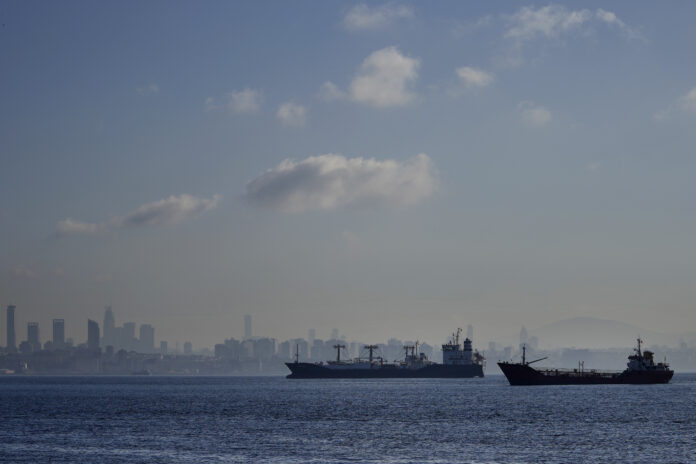The Kremlin said on Monday that talks with the United Nations last week on a deal safeguarding the shipment of grain from Ukrainian ports had been “fairly constructive,” raising hopes that it can be rolled over smoothly.
Senior UN officials met a Russian delegation in Geneva on Friday to discuss Moscow’s grievances about the Black Sea grain initiative, which has lifted a Russian blockade of Ukraine’s seaports.
“There were talks with the UN last week, fairly constructive talks. We have our interest in this deal, which was originally part of the whole mechanism of the deal,” Kremlin spokesman Dmitry Peskov told reporters.
Russia has been demanding unhindered access to world markets for its own food and fertilizer exports in return for agreeing to a rollover of the Black Sea deal, which is due for renewal on Saturday. Moscow has indicated it could quit the deal if progress is not made on its concerns.
“We are actually still a week away from the extension date, so work is ongoing,” Peskov added.
Trending Now
‘Considerable liability’ in implementing dress code, says review sparked by Oakville teacher’s attire
Doctor urges Canadians to ‘avoid getting infected’ and mask up amid viral surge
In a sign of intensifying communication as the deadline of the deal approaches, Russia’s deputy foreign minister, Sergei Vershinin, met the European Union’s new ambassador to Russia, Roland Galharague, on Monday.
They discussed the Black Sea deal and the need for promotion of Russian food and fertilizers on world markets, the Russian ministry said in a statement.
2:58
Russia suspends participation in Black Sea grain export deal
The Dutch government said last week it would release 20,000 tonnes of Russian fertiliser stuck in Rotterdam port to Malawi, after a request from the United Nations. Additional supplies of Russian fertiliser to Africa are planned from Estonia and Belgium where cargoes are stranded.
Russia is the world’s largest wheat exporter and a major supplier of fertilizers to global markets.
Ukraine’s main export route, through its Black Sea ports, was blocked between late February, when Moscow sent armed forces into its neighbour’s territory, and July, when the UN-brokered deal was signed.
Since then, Moscow has repeatedly said that its shipments of grain and fertilizers, though not directly targeted by Western sanctions, are constrained because the sanctions make it harder for exporters to process payments or to obtain vessels and insurance.



